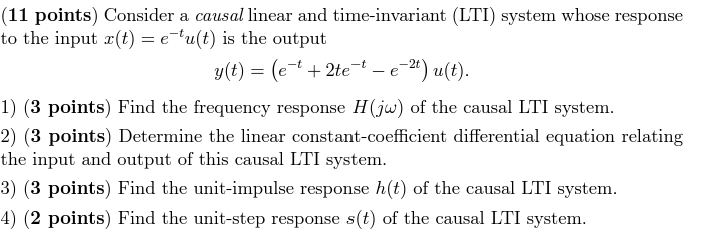Consider a causal linear and time-invariant (LTI) system whose response to the input x(t) = e−tu(t) is the output y(t) = (e−t + 2te−t − e−2 t)u(t). (3 points) Find the frequency response H(jω) of the causal LTI system. (3 points) Determine the linear constant-coefficient differential equation relating the input and output of this causal LTI system. (3 points) Find the unit-impulse response h(t) of the causal LTI system. (2 points) Find the unit-step response s(t) of the causal LTI system.
